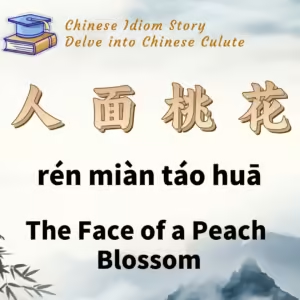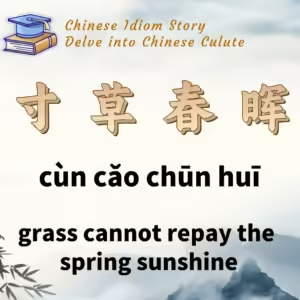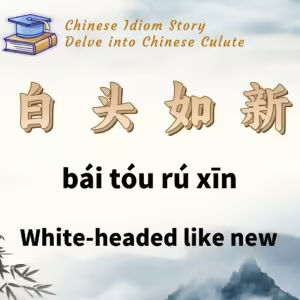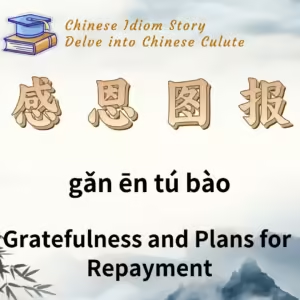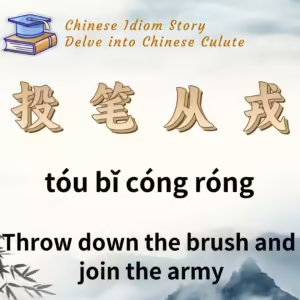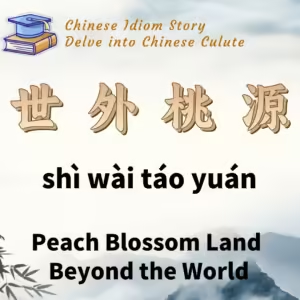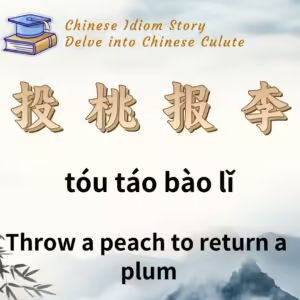
Chinese Idiom: 投桃报李 (Tou Tao Bao Li)
English Translation: Throw a peach to return a plum
pīn yīn: tóu táo bào lǐ
Idiom Meaning: This idiom refers to the mutual exchange of gifts or favors, emphasizing the importance of reciprocity in relationships. “投” (tóu) means to throw or give, while “报” (bào) means to repay or return.
Historical Source: Book of Songs (《诗经·大雅·抑》).
Idiom Story:
The poem attributed to Duke Wu of the State of Wei reflects his virtues and governance. The preface states: “Qi Ao praises Duke Wu’s virtues. He was well-versed in culture and able to heed wise counsel, which enabled him to serve as a minister in the Zhou Dynasty, and thus he composed this poem.” The poem is not only an expression of his literary talent but also a reflection of his self-discipline.
In 771 BC, the Qiang tribe killed King You of Zhou. Duke Wu of Wei led troops to assist the Zhou dynasty in quelling the rebellion. After King Ping of Zhou moved the capital east, he appointed Duke Wu as a minister. At that time, the royal family was weak, and social class conflicts were increasingly severe, leading to widespread turmoil.
Recognizing the instability, Duke Wu, at the age of ninety-five (around 761 BC), wrote the poem 抑 to criticize the royal family’s misguided actions that led to societal chaos and to serve as a warning to himself. The poem consists of twelve sections, and the eighth section contains the lines:
“修明您的德行,使之尽善尽美。好好审慎您的容止,不失去威仪礼貌。没有过失也没有残害,少有不为人所仿效的。有人投赠我桃子,我回报他李子。那童羊没角而自以为有角,这样就会溃败这小子!”
The essence of this section can be summarized as follows: Cultivate and perfect your virtues. Be prudent in your demeanor and maintain your dignity and decorum. Avoid faults and harm, and be a model for others. When someone gives me a peach, I return with a plum. A young ram without horns that mistakenly believes it has horns will inevitably face failure.
Over time, the lines “投我以桃,报之以李” were simplified and extended into the idiom “投桃报李,” symbolizing the idea of reciprocity in human interactions.

